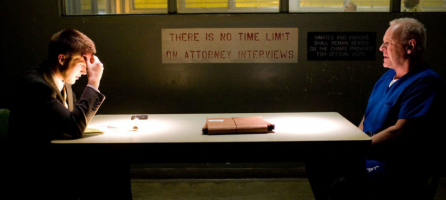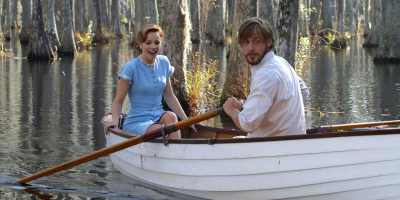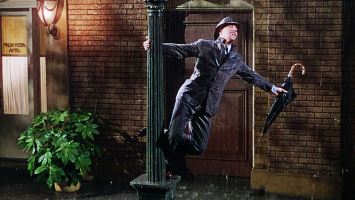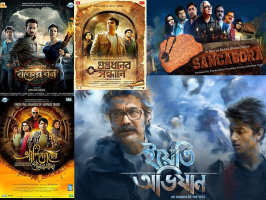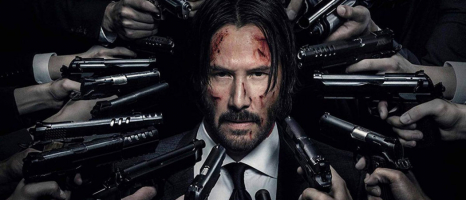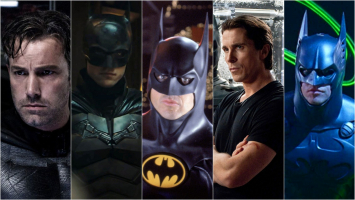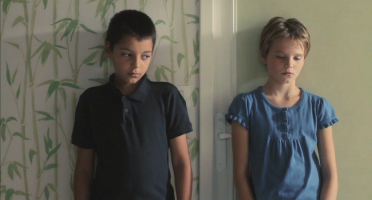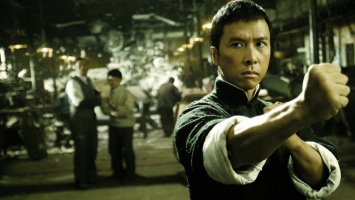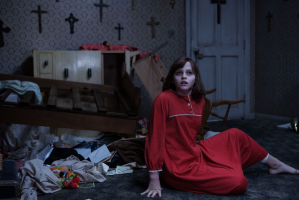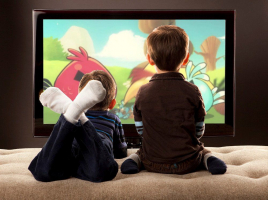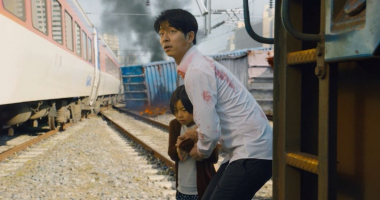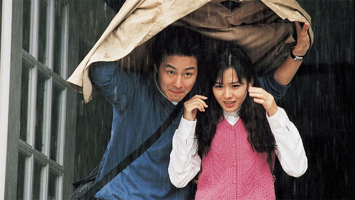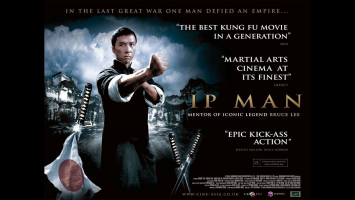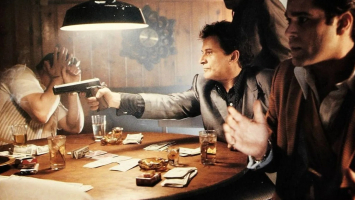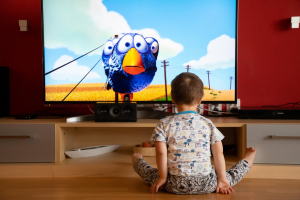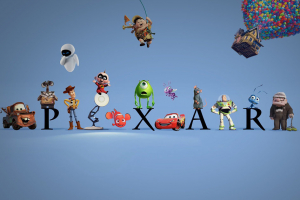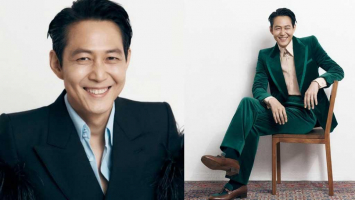Top 10 Best Asian Movies of All Time
The world of cinema is vast and diverse, with a seemingly endless number of films to choose from. However, some movies are simply more memorable than others. ... read more...If you're looking for a great Asian movie to watch, here are 10 of the Best Asian Movies of All Time. From heartwarming tales to edge-of-your-seat thrillers, there's something for everyone on this list!
-
One of the best zombie flicks of all time, whether from East Asian cinema or elsewhere. In South Korea's high-concept action thriller, a train bound for – you guessed it – Busan becomes engulfed in a viral outbreak that turns anybody afflicted into a flesh-eating, fast-moving zombie. The film's slow start focuses on Seo Seok-woo (Gong Yoo) and his young daughter, Seo Su-an (Kim Su-an), establishing their strained and distant connection early on.
As the train departs Seoul Station, a train attendant shows the first indications of infection, almost instantaneously morphing into a frenzied cannibal and kicking off one hell of a train trip for all the people on board. Think again if a two-hour film centered largely aboard a train — with the exception of a brief diversion into another station – seems boring or lacking in ideas. Train to Busan erupts with brilliant set pieces that will spike your pulse rate with their tremendous action but will also have you biting your nails due to the terrible stress. Add in a horde of zombies who move at breakneck speed, ala 28 Days Later (2002), and you have a classic of East Asian filmmaking and one of the best films ever made.
Detailed information:
Director: Sang-ho Yeon
Writers: Joo-Suk Park & Sang-ho Yeon
Starring: Gong Yoo, Ma Dong-Seok, Jung Yu-mi, Kim Su-an, Kim Eui-Sung, Choi Woo-Shik, Ahn So-hee
Release dates: 13 May 2016
Running time: 118 minutes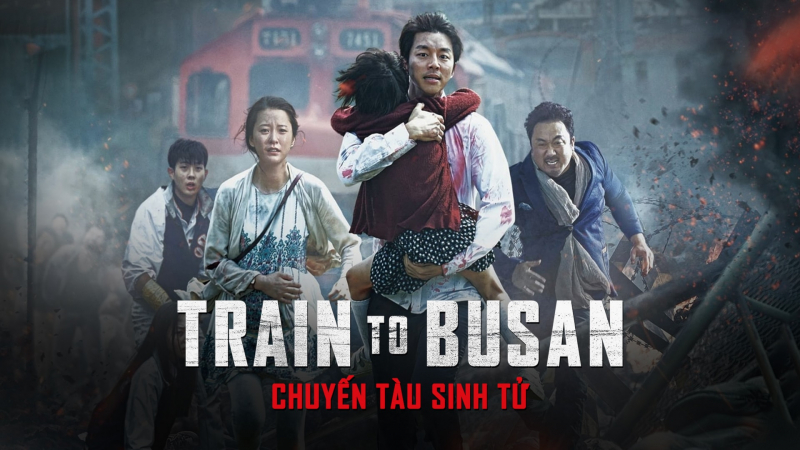
TRAIN TO BUSAN TRAIN TO BUSAN -
In a nutshell, Japanese director Kore-Eda is a direct heir of Ozu, a fellow countryman who established himself as one of the top directors in East Asian cinema in the mid-1900s. Still Walking, a familial picture with complicated, emotional problems and no easy answers, bears the most evident resemblance to Ozu's work. This gentle, compassionate video follows a family over the course of a day as they gather to remember the loss of the eldest son, as they do every year.
In their relationships, there is a comedy, lightness, and simple enjoyment, but there is also a tremendous deal of grief and unsaid conflict between each member of the family. Kore-Eda never oversimplifies these feelings, instead of letting his restrained, immobile camerawork and humorous, diverse narrative speak for themselves. By the end of Still Walking's over two-hour length, a surprising amount has occurred but little has been addressed, which is what makes it so enjoyable. Life isn't always as straightforward as it appears in movies, and finding a solution isn't always so simple. Kore-Eda is fully aware of this, and Still Walking is the finest example of his demonstrating it.
Detailed information:
Writer & Director: Hirokazu Kore-Eda
Starring: Hiroshi Abe, Yui Natsukawa, You, Kirin Kiki, Yoshio Harada
Release dates: June 28, 2008
Running time: 114 minutes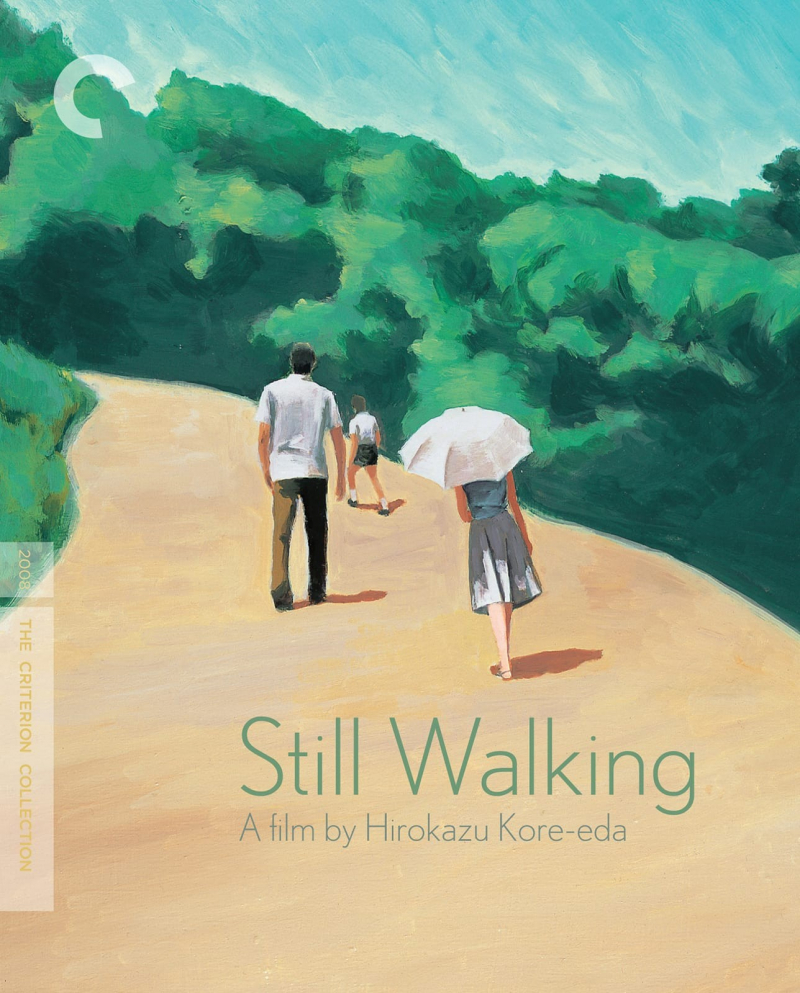
STILL WALKING STILL WALKING -
A ranked list of the greatest East Asian films would be incomplete without a Studio Ghibli film, and while Spirited Away (2001) may be a surprising exclusion, Princess Mononoke just misses out on a slot. Hayao Miyazaki's epic, released in the late 1990s just before Studio Ghibli's enormous international success from Spirited Away, is fanciful but yet rooted in realism, and contains some of the darkest scenes and themes are seen in his or the studio's work. For one thing, beheadings are frequently depicted in this animation, but there is also a sophisticated and caustic commentary on deforestation and animal slaughter.
The significance of ecology is emphasized several times throughout the film, which is set in a true period of Japanese history but incorporates different fictional aspects. Princess Mononoke contains practically everything that fans of Studio Ghibli's work adore: mature themes, amazing animation and world-building, sheer escapism, and great original music. East Asian film is extraordinarily fortunate to have a studio like this in its midst.
Detailed information:
Writer & Director: Hayao Miyazaki
Starring: Yōji Matsuda, Yuriko Ishida, Yūko Tanaka, Kaoru Kobayashi, Masahiko Nishimura
Release dates: July 12, 1997
Running time: 133 minutes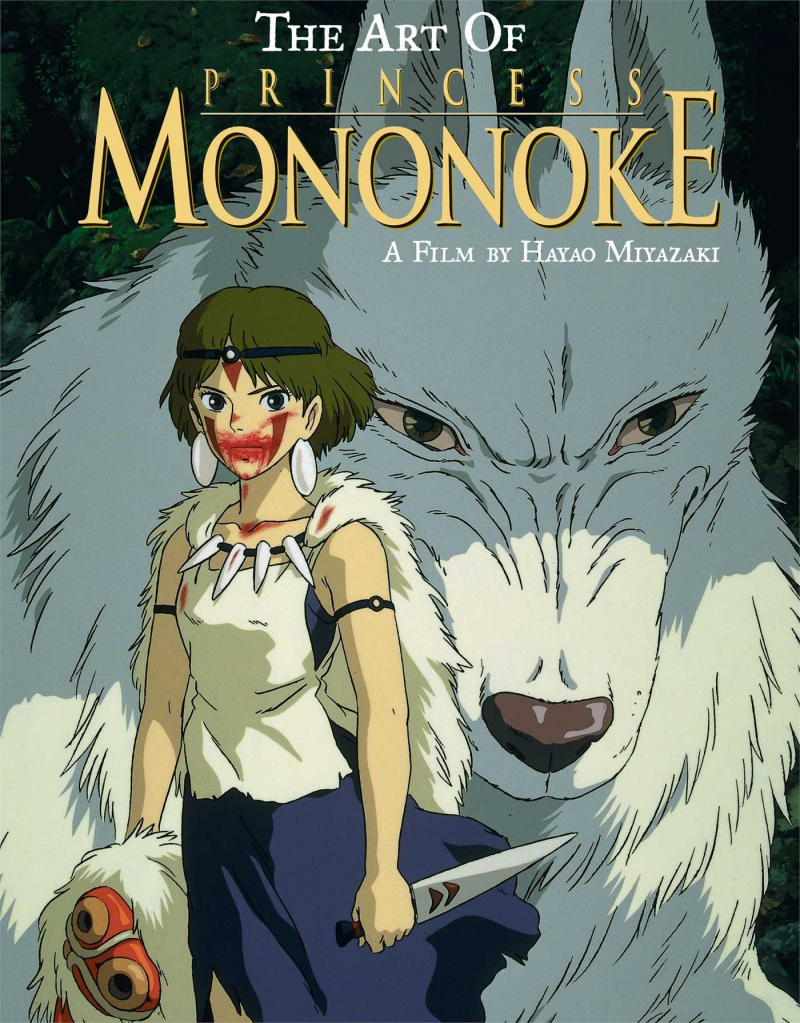
PRINCESS MONONOKE PRINCESS MONONOKE -
East Asian classic Akira, the second of two animated films on ranking, is a gigantic and otherworldly adventure of turmoil (in the most beautiful, neon-kissed way). Katsuhiro Otomo's magnum opus is set in a dystopian Neo-Tokyo in 2019, a metropolis devastated by another global war and governed by wild motorcycle gangs. It begins with a furious bike pursuit through the glistening, futuristic, cyberpunk streets, filled with explosions aplenty and dynamic directing.
Following an accident at the conclusion of the chase, one of the major protagonists gains telekinetic abilities, igniting the complex and intelligent story that develops unexpectedly and refers to themes of world conflicts, collective anxieties of the public, nuclear armament, and more. Perhaps the most astounding aspect of Akira is its complex world-building; it's difficult to imagine another dystopian dystopia being presented as vividly on film as Akira, maybe only rivaled by Blade Runner (1982). Akira draws inspiration from films like this one, yet it never feels derivative, and as a result, it became one of the most influential works in both the animation and science fiction genres. This is mature East Asian animation at its finest.
Detailed information:
Director: Katsuhiro Ôtomo
Writers: Katsuhiro Ôtomo & Izô Hashimoto
Starring: Mitsuo Iwata, Nozomu Sasaki, Mami Koyama, Taro Ishida, Mizuho Suzuki, Tetsusho Genda
Release dates: July 16, 1988
Running time: 124 minutes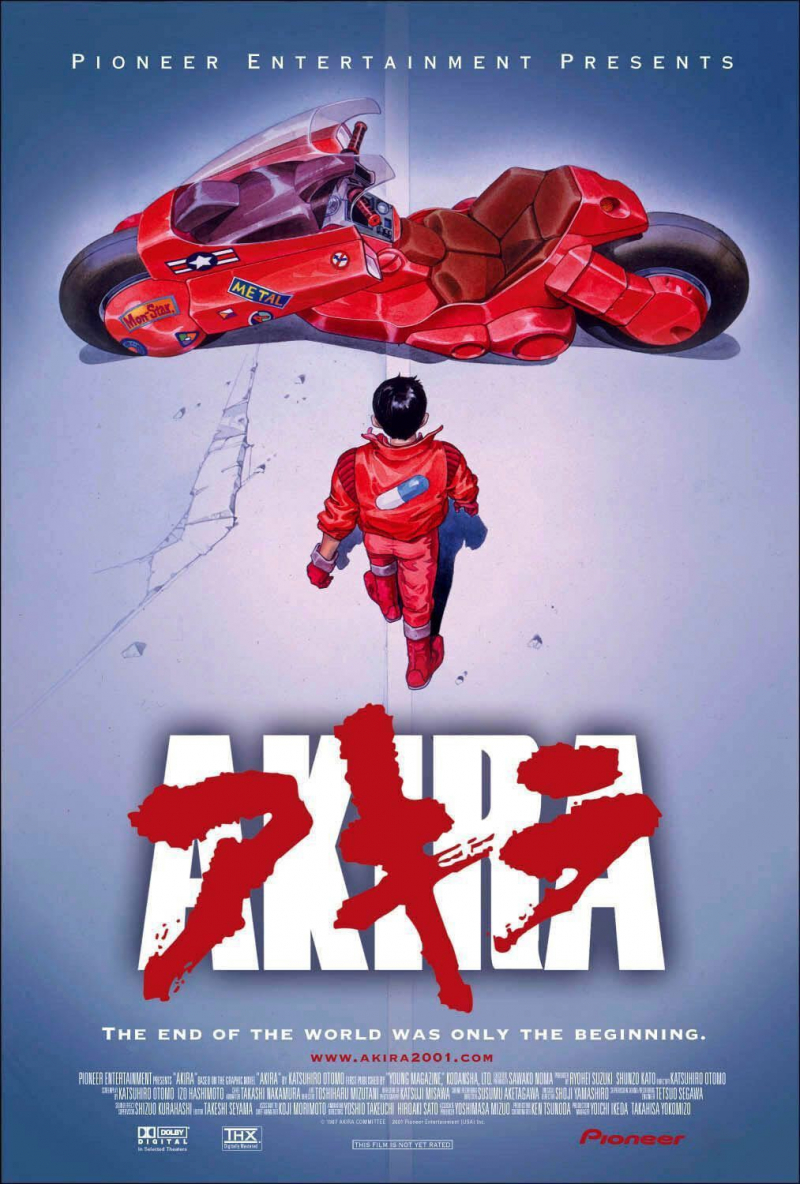
AKIRA AKIRA -
Wong Kar-sensual, wai's achingly beautiful story is not just an East Asian film highlight, but also one of the greatest romances ever committed to film. Set in British Hong Kong in the early 1960s, In the Mood for Love recounts the thriving but forbidden romance of Su Li-Zhen and Chow Mo-wan, played by East Asian movie stars Maggie Cheung and Tony Leung, respectively. Their relationship is consisting of wistful looks, transient dialogue, and brief moments of passing one other in the hallway and street while living as neighbors in a tiny apartment.
Wong, renowned for his fast-paced, innovative direction in films such as Fallen Angels (1995) and Happy Together (1997), opts for a calmer, more measured approach, accentuating the characters' powerful yet repressed emotional and physical reactions. Su Li-Zhen looks like an angel in her gorgeous, exquisite outfits, and the stunning photography wonderfully depicts the rain-soaked, foggy air of Hong Kong's streets. East Asian films are rarely this visually vivid, making In the Mood for Love a must-see on this list.
Detailed information:
Writer & Director: Kar-Wai Wong
Starring: Maggie Cheung, Tony Leung
Release dates: 20 May 2000
Running time: 98 minutes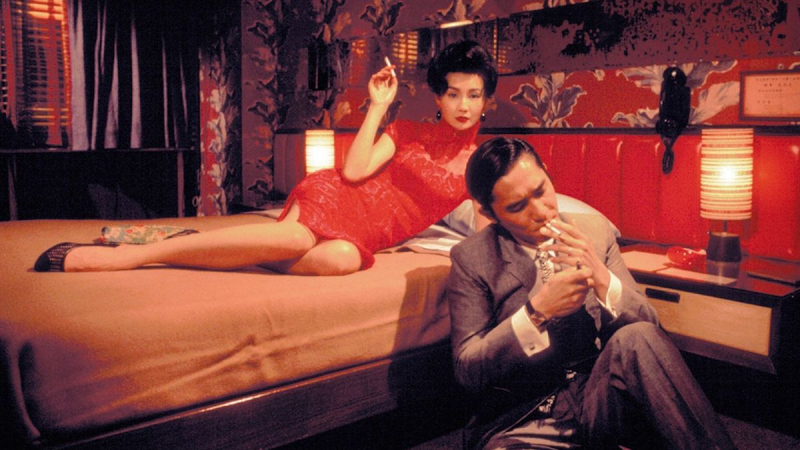
IN THE MOOD FOR LOVE IN THE MOOD FOR LOVE -
Travel through the decades of East Asian cinema to 1962 to witness Masaki Kobayashi's outstanding work. Harakiri does not follow the same structure or themes as other Japanese samurai films from the time, instead of focusing on the act of seppuku – also known as harakiri and literally means 'cutting the belly' – within samurai society. Despite their protests, Kobayashi portrays the soldiers in this film as selfish, dishonest individuals who lack true honor.
He deconstructs and mocks tradition while emphasizing the savagery of the suicidal act of harakiri. Slow zooms and steady camerawork perfectly represent the time and location, allowing the characters and screenplay space to come to life. Tatsuya Nakadai's main performance is a wonderful combination of hilarity and harsh words. Harakiri rightfully belongs in the top five of the rated list, as a work that is not only one of the best East Asian films but also one of the best in the world.
Detailed information:
Director: Masaki Kobayashi
Writers: Yasuhiko Takiguchi & Shinobu Hashimoto
Starring: Tatsuya Nakadai, Shima Iwashita, Akira Ishihama, Tetsurō Tamba, Rentarō Mikuni
Release dates: 16 September 1962
Running time: 134 minutes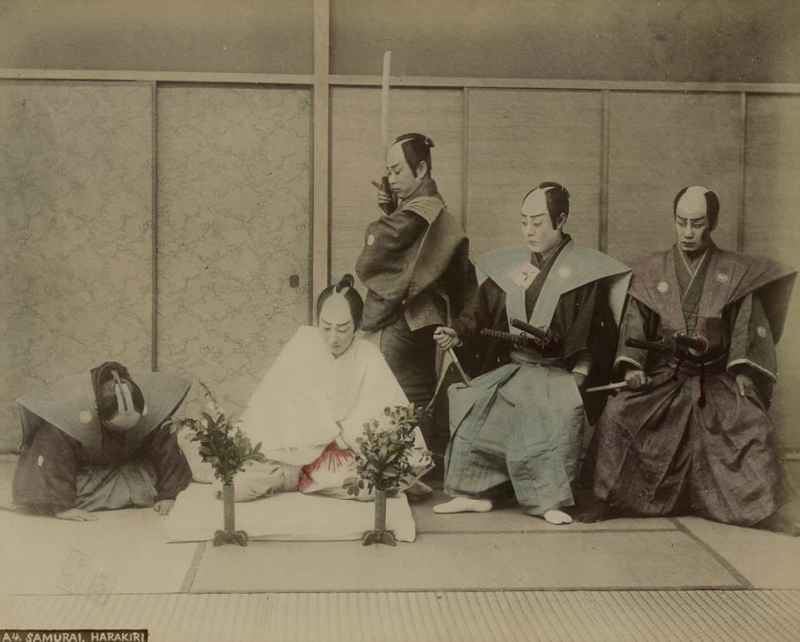
HARAKIRI HARAKIRI -
The newest film on the list, but one of the most deserved. Parasite, Bong Joon-biting ho's satire, is the kind of extraordinary picture that only comes out a few times in a decade. It broke several milestones, most notably being the first non-English language picture to win the Academy Award for Best Picture, and became a big success story for East Asian filmmaking. Parasite, often recognized as the best picture of the decade, will be talked about for years to come. Only Memories of Murder (2003) comes close to matching Bong's finest work, a fiery, piercing critique on class in South Korea with apparent connections to countries throughout the world.
The variety of genres on display is astounding; comedy becomes tragedy and tragedy becomes comedy, with sprinklings of horror, family drama, and thriller elements tossed in for good measure. The shift from one to the other is smooth. Perfect script, amazingly well-thought-out directing and photography, and a sumptuous ensemble cast enrich Parasite's scathing narrative. Over time, Parasite may merit a better ranking on this list. You've undoubtedly already seen it because of the well-deserved buzz around Parasite. If not, go find it right away. And if you've already seen it, watch it again: there's so much to discover in this intricate, enthralling story.
Detailed information:
Director: Bong Joon Ho
Writers: Bong Joon Ho & Jin-won Han
Starring: Song Kang-ho, Lee Sun-Kyun, Cho Yeo-Jeong, Choi Woo-Shik
Release dates: 21 May 2019
Running time: 132 minutes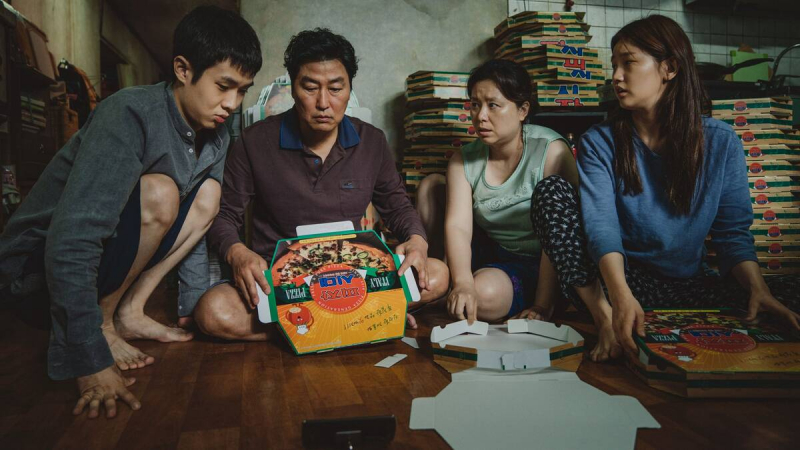
PARASITE PARASITE -
When most people think of East Asian cinema, two names come to mind: Japanese directors Yasujiro Ozu and Akira Kurosawa. It goes without saying that both directors have films in the top three of this ranked list, but the more difficult component was determining which films from each filmmaker should be included. Late Spring is Ozu's pick, just edging out another of his masterpieces, Tokyo Story (1953). East Asian films, particularly Japanese films, have long been associated with familial dramas, and Ozu is the main example of this, a guy whose films nearly always center on the function of families in society, as well as male and female roles within these structures.
The Ozu signature of fixed camera views situated at a low height is here to absorb and savor in Late Spring, allowing the realistic acting and screenplay enough room to breathe. The film focuses on Shukichi and his adult daughter, Noriko, who is played by Chishu Ryu and Setsuko Hara, respectively. The film is quite quiet until a heartbreaking, emotional ending that surges with strength, in which society's demands on Noriko as a young lady to marry and leave home are carefully but powerfully observed. It's Ozu at his best, crafting a harrowingly personal work of observational filmmaking.
Detailed information:
Director: Yasujirō Ozu
Writers: Kazuo Hirotsu, Kōgo Noda & Yasujirō Ozu
Starring: Chishū Ryū, Setsuko Hara, Haruko Sugimura
Release dates: September 19, 1949
Running time: 108 minutes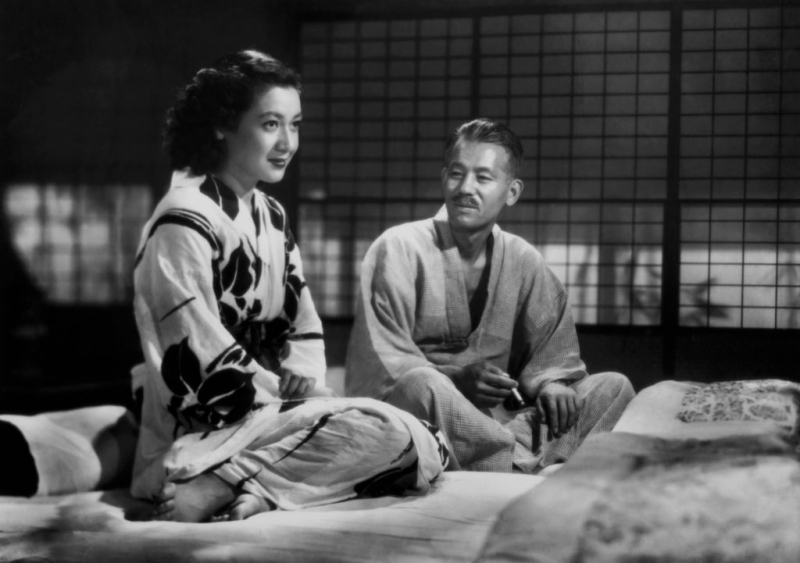
LATE SPRING LATE SPRING -
A Brighter Summer Day, which runs for a whopping 237 minutes, is another of these East Asian films that are impossible to put into words because of its vast yet very intimate force. A Brighter Summer Day, directed by the late Edward Yang, one of the most significant directors of the 'Taiwanese New Wave,' was released in 1991 and is based on a terrible murder tale that received extensive publicity in Taiwan during the 1960s. Aside from its compelling narrative, intricate structure, and well-rounded characters, Yang's film is one of the best examples of the 'New Wave' of cinema that emerged around the same time, a movement that combined intense realism with genuine portrayals of Taiwanese people and society, as opposed to the melodramas or action films that had previously been popular.
Loss of childhood innocence, social brutality, Westernisation, loss of identity, authoritarian control, state rebellion: all of this and more is painstakingly woven together in Yang's magnum work. Don't be put off by the length of the film; instead, immerse yourself in it and be taken to another place and time. When it's over, you'll want to watch this sophisticated piece of East Asian cinema again very immediately. It's difficult to believe that a film of this scope and force exists.
Detailed information:
Director: Edward Yang
Writers: Hung Hung, Mingtang Lai, Alex Yang & Edward Yang
Starring: Chang Chen, Lisa Yang, Chang Kuo-Chu, Elaine Jin, Wang Chuan, Chang Han
Release dates: July 27, 1991
Running time: 237 minutes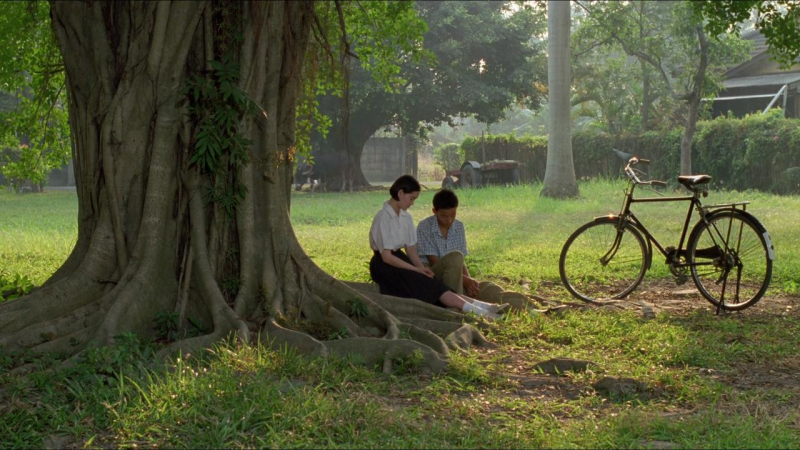
A BRIGHTER SUMMER DAY A BRIGHTER SUMMER DAY -
If you were concerned about the absence of Kurosawa films on this list, don't be. The late Japanese filmmaker was a giant not just in East Asian cinema, but also around the world; his legacy and influence can be seen in works by Hollywood greats such as Steven Spielberg and George Lucas. Seven Samurai may be shorter than the second picture on this list – clocking in at a scant 207 minutes – but it remains the most epic piece of art on the list. A little town hires seven samurai (you got it) to guard their crops against robbers who come on a regular basis to take their produce. That is Seven Samurai in a nutshell, and yet Kurosawa manages not only to make a three-hour-plus picture out of it, but also to make it engaging at every single moment and full of believable – and, more crucially, lovable – people.
Seven Samurai sets good against evil and lets the action run wild, a pattern is seen in a slew of previous English-language epics like the Star Wars series and The Lord of the Rings trilogy. In Seven Samurai, Kurosawa's ability to capture riveting action while keeping everything plain for the spectator is at its peak. Unlike the other East Asian films on the list, Seven Samurai yells with action and ferocity. Kurosawa's greatest, East Asian cinema's best, and maybe the best in the world.
Detailed information:
Director: Akira Kurosawa
Writers: Akira Kurosawa, Shinobu Hashimoto & Hideo Oguning
Starring: Toshiro Mifune, Takashi Shimura, Keiko Tsushima, Isao Kimura, Daisuke Katō
Release dates: 26 April 1954
Running time: 207 minutes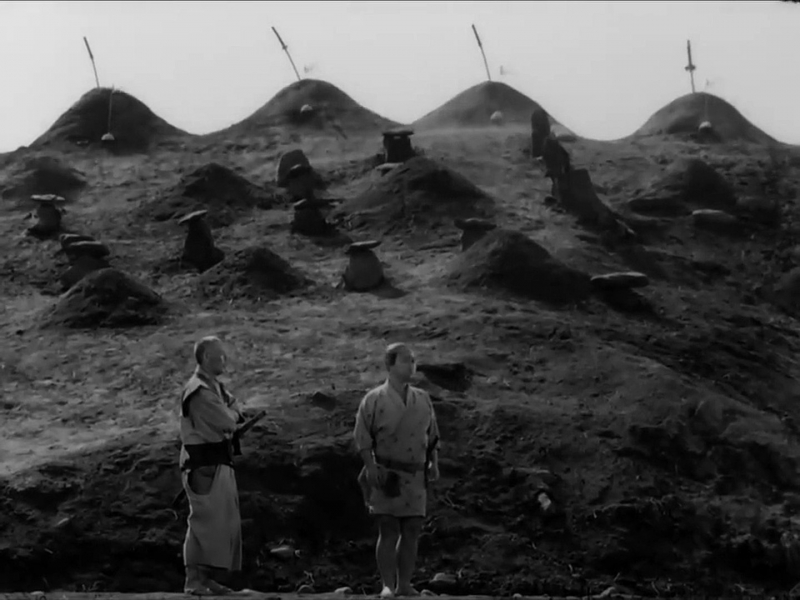
SEVEN SAMURAI SEVEN SAMURAI












